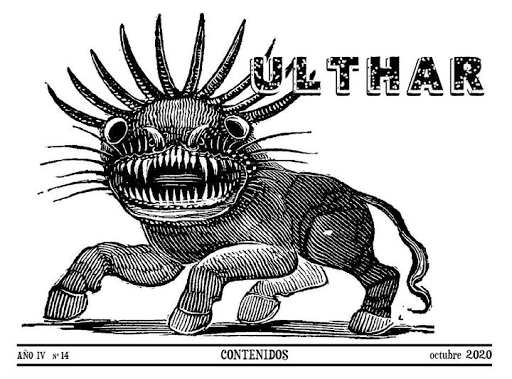Warning: Potential spoilers.
For openers – Fox, why do I have to see a commercial informing me that I’m watching commercial free? Yes, I can see how the humor is in line with the comedic elements of the show, but, you know, this is not the kind of joke one can tell over and over to the same crowd, it’s a funny once and done kinda funny…(that I get to see four times every episode)

***
Over here at Amazing Stories HQ, The Orville has won the battle between “Trek that is not Trek and Trek that is almost Trek”. I refer of course to the battle for fannish hearts and minds between Star Trek: Discovery and The Orville.
Given that I’m very much a “TOS and TAS are Trek and the jury is out on everything else” kinda guy (sue me, I grew up watching the original), it was probably inevitable that my affections would turn towards the unconventional, near Star Trek parody that is The Orville. I think that at least some of that is owing to the fact that The Orville is not a Star Trek derivative, so I am able to make comparisons from a one-step removed point of view. In other words, The Orville doesn’t start out with the possibility of offending my Trekkie sensibilities, whereas anything bearing the name Star Trek has that risk folded into its DNA. And so far, I’ve not been really happy.

Next Generation went too far down the Roddenberry rabbit hole – the future where everyone is always trying to be nice and conflict is merely a symptom of misunderstanding; some of the tropes bothered me as well (ship’s counselor with almost psi-powers…, Data’s “learning to be human”…the outrageous technobabble); DS9 a shadow to Babylon 5, Voyager, well, a holographic doctor just annoyed the pee out of me; Enterprise showed some hope, but as many have said, was cut off at the knees; the first movie was atrocious…my friends and I laughed ourselves silly when we left the theater…(Wrath was pretty good tho…)
Hold your protests: I know there are fans out there who embrace one or more of these shows and films. I’m not attacking your enjoyment, simply telling you how I received these offerings.
That battle I refer to above? It is possible to like both, and more power to ya if you do, you now have TWO shows to enjoy. For me, however, not.
But enough Trek bashing. Bottom line, if you’re a fan, you’re a fan. All the rest is is just talk over coffee.
What appeals to me about The Orville is:
the high-school humor (Bortus can eat anything); the very deft shout outs to both Star Trek and other SF show episodes; the near-parody of the Data-like character, the Klingon-like character, the Tasha Yar-like character and MacFarlane’s genius interpretation of the Kirk-like character.

Seth MacFarlane is taking a lot of hits for “not being as funny as he thinks he is” and “lack of acting ability”…but I think the joke is on those naysayers: I think MacFarlane is doing a near-genius interpretation of William Shatner’s “lack of acting ability”, for which the original Captain Kirk was assailed back in the day. This my be too subtle for many viewers…maybe it really is poor ability on MacFarlane’s part, but I don’t think so.
Not to mention the very-thin line that the entire show is treading: very often, you can’t tell if something you’ve seen and question is an attempt at humor, a badly handled SF element, a parody of a badly handled SF element or a meta joke combining all three.
Take, for example, the latest episode. The Krill come from a planet where 96% of all sunlight is blocked by the atmosphere; therefore, the Krill are vulnerable to ultraviolet light. This fact plays a key role in the episode (and no doubt will be back in future).

But lets go through this. First, if the Krill come from a planet whose surface only receives 4% of its star’s sunlight (and we have to assume that the star in question is a close analogue of Sol), then “daytime” on the Krill home world would resemble a cloud covered night sky with a gibbous Moon.
Yet it is obvious that there is much more light regularly provided aboard the Krill destroyer we get to visit.
Was this an over site by the script writers? Or was it a deeper joke on SF television shows, a “skiffy” moment where it is obvious that the script has gotten itself into a hole and, instead of working their way out with some hand-wavium, technobabble or both, they simply chose to ignore the plot hole?
OR did the writers go through this and decided that the real solution lies in something taking place off-screen and unmentioned (if only to give geeky viewers something to talk about over coffee) – that once aboard the Krill vessel, we’re seeing things as the Krill would see them? (Yes, this raises questions about the capabilities of the camouflage devices worn by Malloy and Mercer, but….)
MacFarlane’s show creates a situation where viewers – particularly SF fans – can play endlessly with elements of the show and, barring a definitive explanation from a script writer, we’ll never know what the actual intent was.

This is a surprisingly effective technique, because it helps to disarm criticism…no, that wasn’t stupid or wrong, it was (maybe) a joke.
Then there’s the Krill. Is it just circumstance that the big, bad, alien enemy, stand-ins for the original Klingons, are named for one of the lowest creatures in Earth’s food chain? Or is it a deliberate naming, the consequences of which we will no doubt learn in later episodes?
The show is possibly written on so many levels, it reminds me of watching The Flinstones when I’d matured enough to understand that the show was funny on a whole different level. The high-school humor may very well be meant for the audience members who won’t catch the call-outs to Firefly, or even Beneath the Planet of the Apes (as seen in this episode).

And then, then there are the subjects being dealt with in the story line. Basic questions that humanity has been dealing with ever since the first human smashed a thumb with a stone tool. They’re approaching these issues head on; there’s a little less subtlety than was found in Trek’s TOS – but that too may itself be a comment on the audience. It may be that one of the meta issues being presented here is a discussion of the “dumbing down” of science fiction for a wider audience.
I sure hope that my speculations are near-accurate, because it would suggest that The Orville is a show that “gets it” when it comes to televised science fiction, and we’ve needed that for quite some time.










